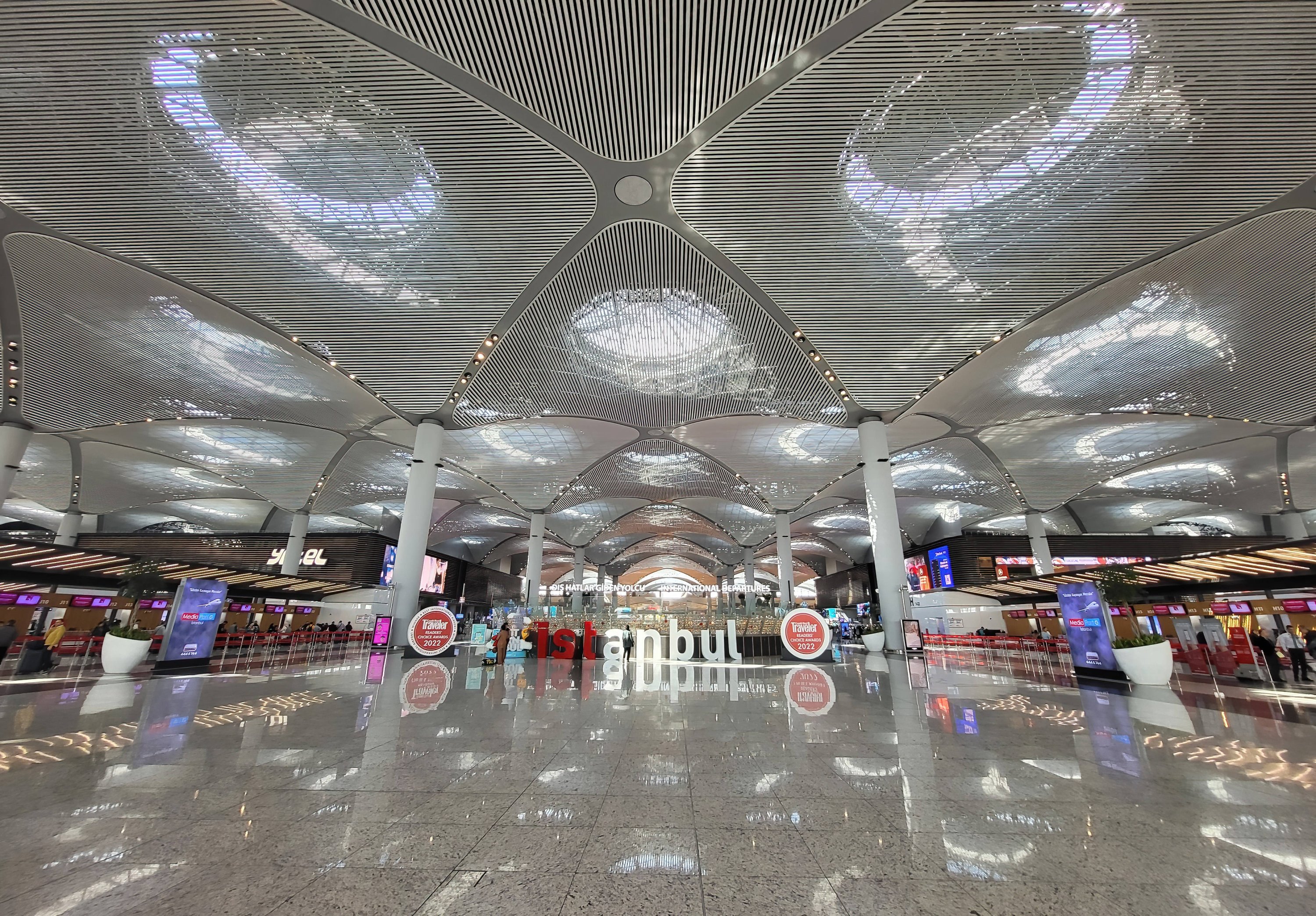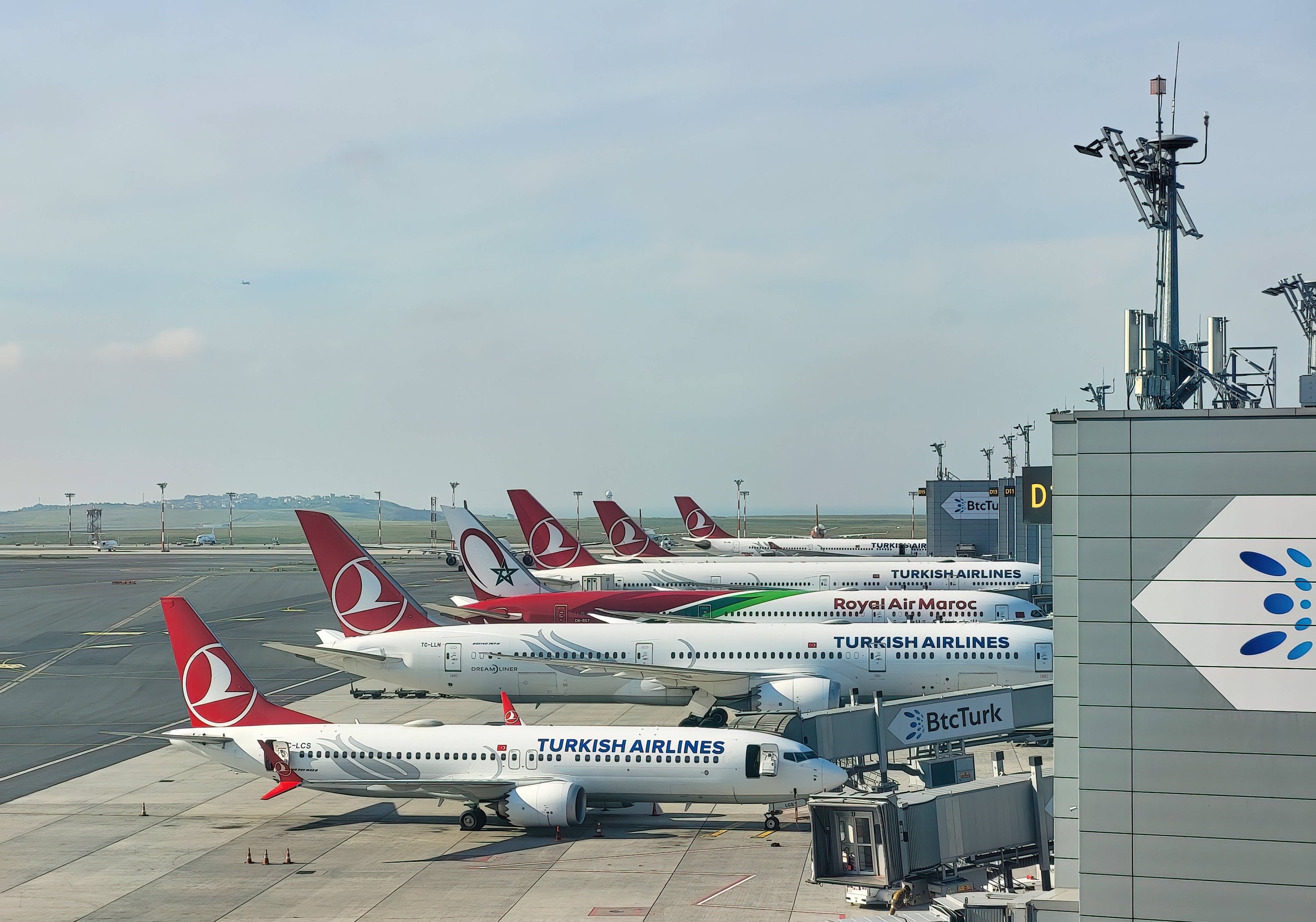© Turkuvaz Haberleşme ve Yayıncılık 2025
Türkiye's aviation sector is growing rapidly with the significant investments made after its rapid recovery in the post-pandemic period.
Investments have enabled Türkiye to become a dominant player in the European market.
Moreover, Türkiye's position as an aviation hub for European, Middle Eastern, North African and Caucasus markets contributed to the sector's development.
Last year, global international passenger capacity fell 12% behind the pandemic year of 2019 while the country's flag carrier Turkish Airlines (THY), on the other hand, continued to be one of the leading airlines in the sector with a 27% increase for the same period, according to data from the International Air Transport Association (IATA) compiled by Anadolu Agency (AA).
Investing in Türkiye's aviation infrastructure has transformed Istanbul Airport, a sprawling hub on the city's northern coast, into the airport with the most flights in Europe.
Istanbul Airport ranked first among the busiest airports in Europe last year, as it did in 2022, according to data from the European Organisation for the Safety of Air Navigation (Eurocontrol).
The average number of daily flights at Istanbul Airport in 2023 increased 19% year-over-year, reaching 1,375.
Istanbul Airport also broke the airport network record with 1,684 flights on June 22, 2023.
Istanbul Airport was followed by Amsterdam Airport Schiphol with an average of 1,255 daily flights, Heathrow Airport in London with 1,251 flights, Paris Charles de Gaulle Airport with 1,247 flights, and Frankfurt Airport with 1,179 flights.
The mega airport, along the Black Sea coast, has become one of the most important transit centers in aviation since it was officially declared open in late October 2018 and became fully operational in April 2019.

In the first three months of this year, it hosted 17.6 million passengers, 3.5 million of which were on domestic flights, and 14.1 million on international flights.
The airport served around 76 million passengers in 2023, up from around 52.75 million in 2019. It looks to increase the count to 85 million throughout 2024.
Turkish Airlines and Pegasus Airlines combined, hosted 115 million passengers in total last year, up 10% year-over-year.
Turkish Airlines hit an all-time high, carrying 83.4 million passengers last year, despite global geopolitical tensions and macroeconomic uncertainties, thanks to its extensive flight network and highly qualified workforce during the pandemic period.
The airline's domestic passenger capacity hiked 23.5% last year compared to 2022, while the number of passengers soared 19% to over 30 million.
International capacity climbed 16%, and the number of passengers increased 14% to 53 million.
The increase in the number of passengers abroad, especially in European countries with Turkish diaspora, exceeded 20%.
Turkish Airlines Cargo has more than tripled its market share in cargo transportation in the last 10 years and continued its success as the world's fourth largest air cargo carrier in 2023, according to IATA data, offering air cargo services at 364 destinations in 133 countries with four cargo and 416 passenger aircraft.
Turkish Airlines currently aims to have a fleet of more than 800 aircraft in 2033.
The airline added 46 aircraft to its fleet last year, bringing its total to 440, up 12%, despite the global aviation industry's supply problems and the bottleneck in production.
Looking forward, last year's mega order of over 200 Airbus aircraft is expected to speed up the process of expanding its fleet.
The number of passengers hosted by Turkish Airlines climbed to 18.5 million in the first quarter of this year compared to 17 million in the same period of 2023.

The number of transit passengers hiked from 6.9 million in January-March 2023 to 7.6 million in the same period in 2024.
As for the low-cost Pegasus Airlines, its number of passengers reached 31.98 million last year, up 19% year-over-year.
Meanwhile, airline occupancy increased by 1.1 points on an annual basis in 2023, reaching 84.8%.
The number of domestic passengers using Pegasus Airlines soared by 10% to 11.98 million and international passengers by 24% to 19.95 million.
